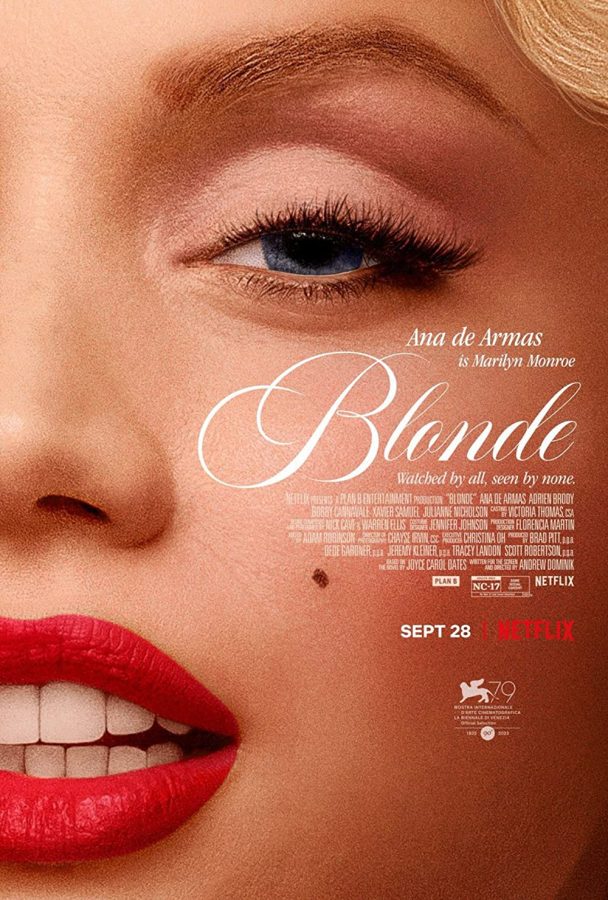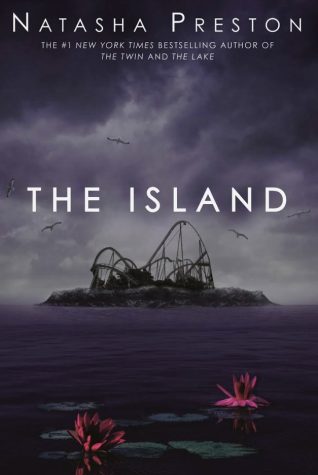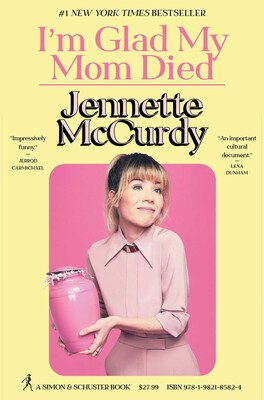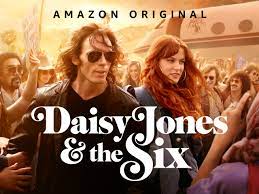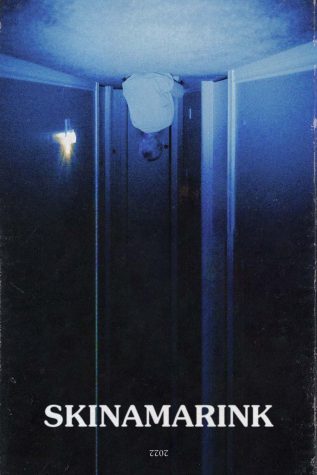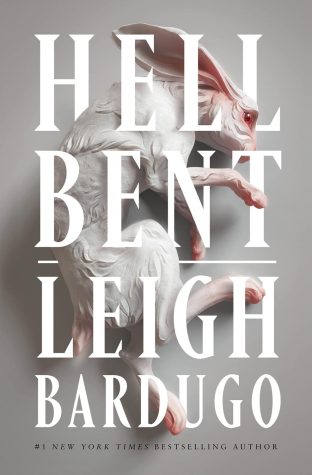‘Blonde’ is equally disturbing as it is fictional
October 24, 2022
Disclaimer: In the following article, there will be discussions on sensitive and potentially triggering topics such as sexual assault, domestic violence, drug abuse and suicide.
The troubled Hollywood icon Marilyn Monroe had a tumultuous life from spending most of her childhood in foster care to the sexualization of her persona throughout her entire career. The new Netflix movie “Blonde” is a movie adaptation of a fictional book about the personal life of Marilyn Monroe (Ana de Armas). But this controversial, self-proclaimed “biopic” has left the audience wondering if this fabricated version of history is disrespectful to the star herself.
The film begins with a young Marilyn Monroe, also known as Norma Jean Mortenson (Lily Fisher), who, at the time, was living with her mother, who had schizophrenia. We witness her mother, Gladys Pearl Baker’s (Julianne Nicholson), manic episodes including when she tries to drown her own daughter in the bathtub. After her mother is confined in an asylum, Norma Jean would go on to live in foster homes and orphanages until she gets her big break as a model and actress.
While Gladys was a single mother who was diagnosed with paranoid schizophrenia, “Blonde” merely scratches the surface of the trauma Norma Jean faced as a child. What the movie doesn’t show us is the fact that Norma Jean was sexually abused during her time in foster care, and eventually married a 21-year-old factory worker at the tender age of 16 to escape the horrors of her childhood.
At the beginning of the movie especially is where we get to see how Norma Jean’s strained relationship with her mother ignites a fire within her — a yearning to meet her father. This longing for a connection with her absent father ends up influencing many of her decisions and relationships later in the film.
Suddenly, we are flashed forward to when Norma Jean becomes the glamorous and legendary Marilyn Monroe. Through the progression of her fame, we also witness the evolution of Monroe’s status as a sex symbol in the 1950s and early 1960s.
The movie constantly alludes to the fact the only reason Monroe was landing all of these major roles on the big screen was because of her looks and body. I think this underlying theme does a disservice to Monroe and undermines her skills and success. We never see the dead-ends in Monroe’s career and the hardships she was forced to overcome in the beginning stages of acting and modeling. This leaves a significant gap in the timeline of Marilyn Monroe’s life and leaves out the context that is important to understand how she reached her stardom.
Another critique of this movie is that it heavily sexualized Monroe. Some may find it to be an accurate depiction of what she experienced during her career, but I found it to be counter-productive. It would have been more impactful if we were given more insight into Norma Jean’s inner thoughts, rather than how men oversexualized her and the media created a controversial image of her as a “blonde bombshell.”
With that being said, it’s also important to note that there’s a small detail throughout the movie: it frequently switches between black and white and color film. When Monroe’s experiences were shown in color, she was at peace but when the scenes were in black and white it usually foreshadowed when something traumatic was about to happen to her.
I also thought it was interesting how “Blonde” showed the world-renowned actress experiencing deindividuation; throughout the entire movie, she claims that Marilyn Monroe is just her stage persona and that the girl on the inside was still Norma Jean Mortenson.
Her name actually ends up being a significant symbol throughout the movie as well. Depending on who she is talking to, they will either refer to her as Norma Jean or Marilyn. There is a stark difference between how people treat her as Marilyn Monroe versus as Norma Jean, and we end up seeing this juxtaposition through her final two marriages.
This leads to the next component the film used to characterize Marilyn Monroe: her relationships.
During her initial rise to stardom, we see Marilyn Monroe in a polyamorous relationship with Edward G. Robinson Jr. (Evan Williams) and Charlie “Cass” Chaplin, Jr. (Xavier Samuels). Upon further research, this has never been proven true. Allegedly, Marilyn Monroe did briefly date Cass Chaplin, Jr., in 1947 but there is no evidence that she was in a relationship with both men at the same time.
After the press exposes the threesome, Monroe is forced by her manager to stop seeing Robinson and Chaplin. But soon after, she meets New York Yankees baseball player Joe DiMaggio (Bobby Cannavale), and they end up falling in love and getting married. At first, they are shown as a classic young couple in love, until things turn dark when the jealous DiMaggio becomes abusive.
When Monroe films the famous scene from “The Seven Year Itch” where her white dress flies up as she stands above the windy subway grating, DiMaggio is infuriated with her “promiscuous” behavior. Later that night, DiMaggio, who is drunk, beats Monroe. As the audience, we don’t actually see this happen on screen but we can hear it, which arguably makes it even more eerie.
The barriers and turbulence of their relationship are shown right from the beginning. DiMaggio is looking for a stay-at-home wife and often attempts to deter Monroe from furthering her acting career, while Monroe wants someone who she can discuss her aspirations with. Their disconnect is also shown through the way that DiMaggio calls her “Marilyn,” as he never truly sees past her Hollywood persona.
This depiction of the marriage between Monroe and DiMaggio has been adamantly denied by the DiMaggio family — so much so that on IMDb, Cannavale’s character is now renamed as the “Ex-Athlete.” However, I found multiple sources that confirm DiMaggio’s controlling and abusive tendencies rendered in “Blonde.” According to The Mercury News, biographies, news reports, and eyewitnesses, including accounts from the late baseball star’s son, also support the portrayal of Monroe and DiMaggio’s marriage.
Their marriage was short-lived and ended in divorce in 1955; Monroe and DiMaggio’s relationship is heavily contrasted with the loving romance between Monroe and Arthur Miller (Adrien Brody). Miller was a playwright who was best known for “All My Sons” (1947) and “Death of a Salesman” (1949).
Miller was Monroe’s third and last husband. The couple is actually shown to have a fairly healthy relationship. Unlike DiMaggio, Miller sees Monroe as Norma Jean and is interested in her passions, not only as an actress but also as a literature enthusiast.
I really enjoyed watching the growth in their marriage because we get to see past the characterization of Monroe stereotyped as a “dumb blonde.” I wish the movie dived into this more, because other than during Monroe and Miller’s relationship, we never understand the inner workings and thoughts of Marilyn Monroe.
But of course, their marriage ends in betrayal when Monroe finds out that Miller had been using her personal trauma as the inspiration for his upcoming play.
The last affair Monroe is involved in within the film is with President John F. Kennedy (Caspar Phillipson). While Phillipson’s character is never explicitly said to be Kennedy, viewers can easily assume this, especially since their appearances are so similar. With that being said, I wouldn’t call this a relationship because the movie portrays JFK as a predator who only views Monroe as an object, and the only scene they have together is when he sexually assaults her with his wife in the next room.
There is scarce evidence that Monroe and JFK were in a relationship but there are accounts from Monroe’s close friends confirming the affair. However, any interactions between the two remain largely a mystery and considering that most of this movie is fictional, it is reasonable to conclude that this scene falls under the same umbrella.
The timeline of “Blonde” is largely based on the man that Monroe was involved with at that time, which is arguably not very interesting. Basically, the entire film is from the perspective of men, and we barely see past the sexualized image of her. It also eroticized the concept of “daddy issues” specifically through Monroe’s relationships, which only further perpetuated her “promiscuity.”
Not to mention, the final scene that shows Monroe dying from a drug overdose was disturbing, to say the least. They romanticize her death by portraying it in almost a dream-like state. In my opinion, it seems to be tone-deaf especially since after Monroe’s death in 1962, there was a steep uptick in suicide rates. This phenomenon is known as the Werther Effect: when celebrities are reported to have died by suicide, there is an increase in suicide rates in the general population. It is never explicitly stated in the movie that she committed suicide, but the imagery and idea that her death was peaceful and dreamy is harmful.
While the black and white cinematography and the overall style of “Blonde” were very artistic, I found it to be unnecessarily violent and graphic. It didn’t add anything meaningful to the movie, and it just made it difficult to watch.
I also don’t understand why this drama is labeled as a biopic when most of it isn’t based on history. Apparently, it was supposed to be about the rumored parts of Monroe’s life, but this concept seems counterintuitive since in order to bring awareness to the fact that she was sexualized, the movie sexualized her even more.
There is a lot more to unpack with this movie but the bottom line is that “Blonde” is disdainful to the late actress. What could’ve been an impactful film, actually paints Marilyn Monroe in a negative light. The main takeaway I got from the historical fiction piece is what’s the point? Sure, maybe the real story of Marilyn Monroe has already been done, but anything would have been better than this.

